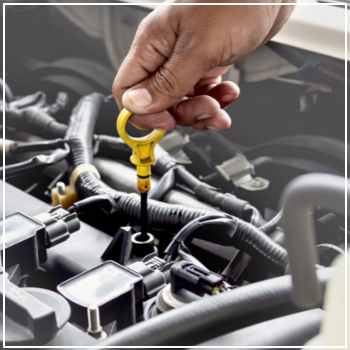 Let’s face it—oil changes don’t always make the top of anyone’s priority list. It’s easy to overlook that little dashboard warning light, thinking you’ll get around to it eventually. But before you know it, what starts as a simple oil change might turn into a bigger issue, like needing a new filter or even flushing out your transmission fluid.
Let’s face it—oil changes don’t always make the top of anyone’s priority list. It’s easy to overlook that little dashboard warning light, thinking you’ll get around to it eventually. But before you know it, what starts as a simple oil change might turn into a bigger issue, like needing a new filter or even flushing out your transmission fluid.
Don’t let yourself get caught off guard. Be more proactive about keeping up with your car’s oil maintenance.
Why Pay Attention to the Oil?
A few decades ago, most drivers had to manually check their oil levels because dashboard notifications weren’t a thing yet. Nowadays, with all the advancements in automotive technology, we’ve become a bit complacent, relying on those notifications instead of staying vigilant ourselves.
Your car’s oil plays a critical role in keeping everything running smoothly. It:
- Keeps the engine operating efficiently
- Reduces friction between moving parts
- Helps prevent carbon and varnish build-up
- Transfers heat away from the combustion chamber
While oil is essential for optimal performance, it doesn’t last forever. Over time, the oil accumulates dirt, debris, and tiny metal shavings from normal wear and tear. As it ages, it thickens and turns into something akin to sludge. The additives that once kept it smooth and flowing lose their effectiveness, leaving your engine vulnerable to overheating and mechanical stress.
If left unattended, your engine components will start grinding against each other, leading to blockages, overheating, and potentially irreversible damage. Regularly topping off or replacing the oil is one of the easiest ways to avoid costly repairs down the line.
Staying on track with oil changes:
- Maximizes your car’s fuel efficiency, ensuring you’re not wasting gas due to insufficient lubrication.
- Reduces the amount of harmful pollutants your car releases into the environment.
- Enhances your engine’s ability to clear out debris and contaminants.
Here are some practical tips to help you keep an eye on your oil changes and stay ahead of maintenance.
Take Those Reminders Seriously
That little dashboard light isn’t just there to annoy you—it’s a reminder that your car has hit a certain mileage threshold since its last oil change. Don’t wait too long after seeing it pop up. If you pay attention to how many miles you drive between notifications, you’ll get a good idea of how often you need to schedule an appointment.
Refer to Your Owner’s Manual
Years ago, the general rule was to change your oil every 3,000 miles or every three months. However, modern cars have advanced oils and engines that can go much farther than that before needing a change. Check your owner’s manual for specific recommendations tailored to your vehicle’s make and model.
Get Familiar with Your Oil Levels
If you live in an area with extreme weather or do a lot of towing, your oil might degrade faster than usual. Make it a habit to check your oil at least once a month. Here’s how:
- Open the hood and locate the dipstick.
- Pull it out and wipe it clean with a dry cloth.
- Reinsert the dipstick, pull it back out, and check where the oil level sits. Most dipsticks have markings like “low,†“min,†or “add†to help you gauge the level.
- Double-check by wiping the dipstick again and inserting it once more.
If the oil is between the “low†and “add†marks, you’re good to go. If it’s below that range, it’s time to add more oil.
Checking the color and consistency of your oil is just as important as monitoring the level. Look out for:
- Color: Milky oil is a red flag—it’s degraded and could harm your engine.
- Consistency: Oil that feels gritty, sludgy, or grainy suggests it’s carrying debris from the engine and needs replacement.
Pay Attention to Your Driving Habits
Do you drive infrequently compared to the average driver? If so, sticking strictly to the mileage guidelines in your manual might leave old oil sitting in your engine for too long. Consider scheduling an oil change at least twice a year to ensure your car’s oil is fresh and ready to support your engine.
At DaSilva’s Auto Body, we’re here to help you stay on top of routine maintenance, including oil changes. If your dashboard light has been blinking or you notice any unusual signs when checking your oil, give us a call today to book an appointment. We’ll make sure your car runs smoothly for years to come!
Sulfur Autotrophic Denitrification Filter Material
e
Core Wire For Steelmaking,Core Wire For Casting,Export Sulfur Iron Cored Wire
LUANCHUAN COUNTY HENGKAI METALLURGICAL MATERIALS SALES CO.,LTD , https://www.pyritechina.com